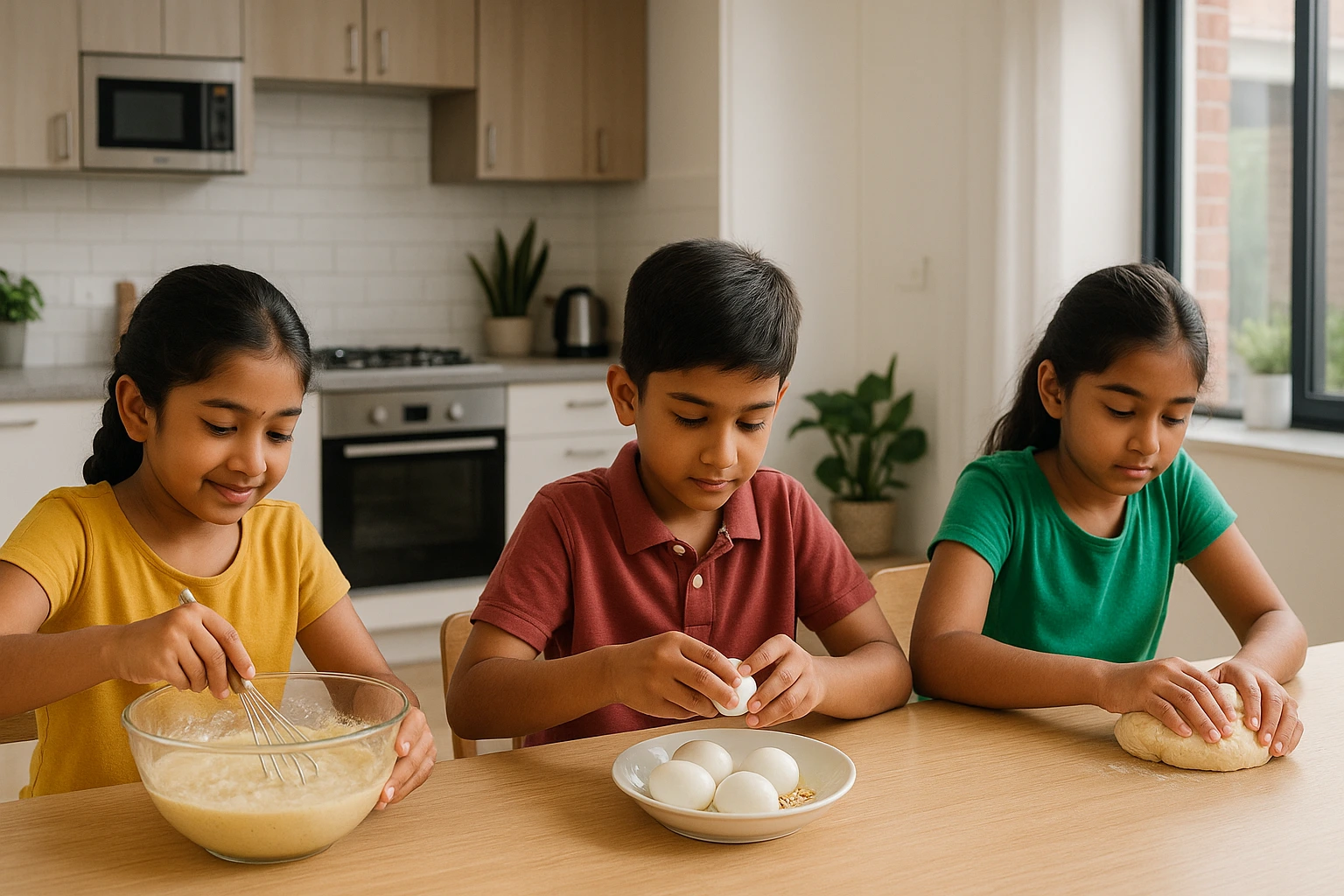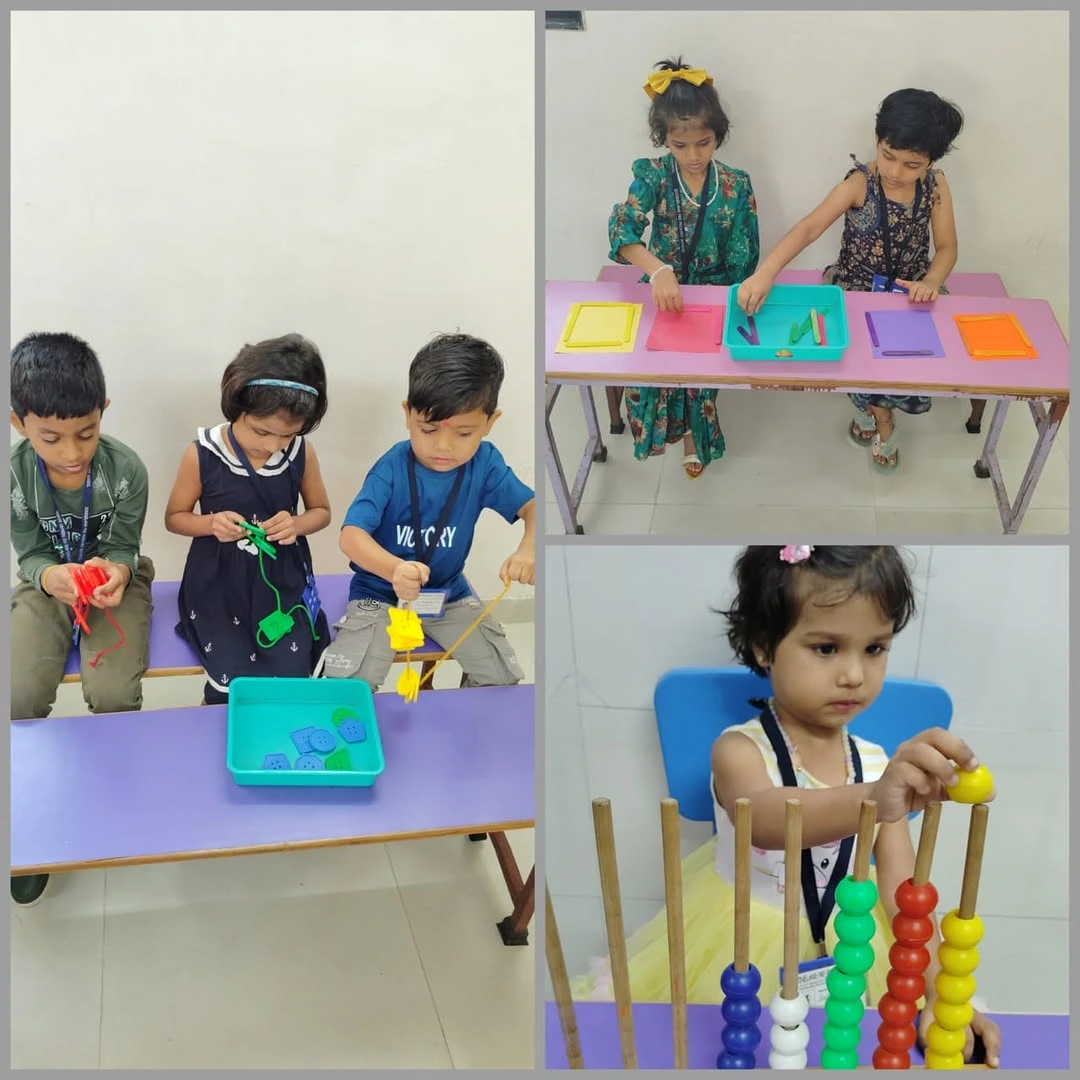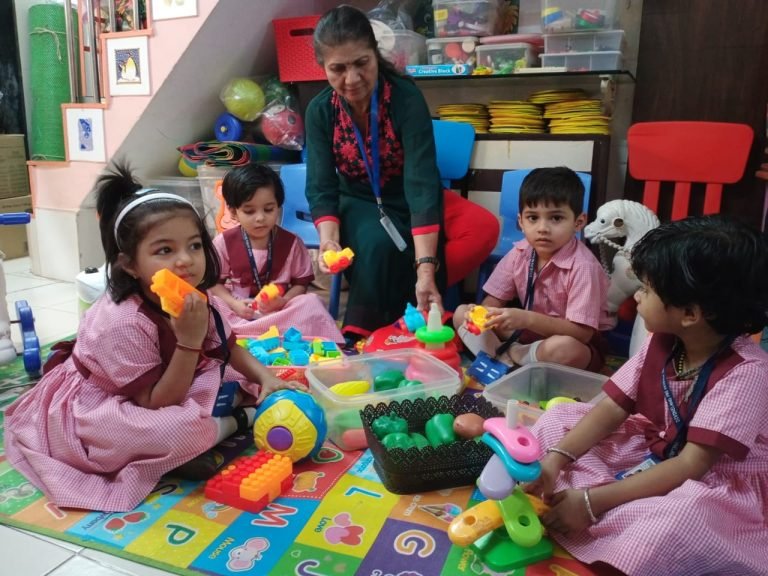
Image made by using AI
Children learn optimally when learning is combined with play, and this applies to the development of Fine Motor Skills as well. Simple activities such as block building, stringing beads, or even turning book pages can build the hand and finger muscles. These daily tasks contribute to children’s enhancement of eye-hand coordination, finger strength, and control, all of which are crucial for writing, dressing, and everyday activities.
By changing playtime into practice, parents and caregivers can contribute to the consistent development of Fine Motor Skills naturally and in a delightful manner. Fine Motor Skills lay the foundation for independence and confidence in future, when fostered early.
Everyday Tasks that Help
To improve kid’s Fine Motor Skills, they don’t always need different tools or structured lessons. Numerous daily routines naturally encourage the activation of hand and finger muscles, providing children with strength and control necessary for learning in the future. Parents can promote skill acquisition in a playful and tension-free manner by converting everyday habits into practice exercises.
Here are few examples of daily activities that make a difference:
Buttoning and Zipping Clothes
Buttoning or pulling zippers strengthen finger muscles and improves coordination. These actions train kids to use both hands together, a skill useful for writing and drawing.
Pouring Water
Be it filling a cup or helping pour into a bowl, this activity builds wrist control and grip. It also teaches kids how to manage hand pressure, which in future will help them control pencils and crayons easier.
Picking Up Toys
Picking and setting up small blocks, cars, or puzzle pieces improves pincer grip and eye-hand coordination. Such repetitive actions train children to hold writing tools with precision and comfort.
Helping in the Kitchen
Simple tasks like mixing the batter, peeling boiled eggs, or kneading dough, work on hand strength and flexibility. These activities also encourage patience and focus, skills that are valuable in schoolroom learning.
Through these simple habits, children strengthen the foundation of their Fine Motor Skills while also building independence. Daily practice makes sure their fingers and hands are ready for more advance tasks like holding a pencil, cutting with scissors, or tying shoelaces. Eventually, supporting Fine Motor Skills through daily tasks creating a natural bridge to confident writing and self-care abilities.
To inquire about Divineland Pre Primary School, Call or Whatsapp on +919082778593 / +918591021373.
Click Here, to download the Divineland Pre Primary School brochure!

Play Ideas for Strong Hands
A fun way to build strength and coordination in tiny hands is through Playful Activities. When children use their fingers and palms in various ways, they little by little improve control, stability, and dexterity. These skills form the foundation for writing, dressing, buttoning clothes, and various daily tasks. Supporting Fine Motor Skills through fun games keeps learning light and natural.
Here are some simple yet useful play ideas:
Clay Modelling:
Squeezing, rolling, and molding clay develops muscles in fingers and hands. It enhances grip as well as stimulates imagination while developing Fine Motor Skills.
Bead Threading:
Plying beads on a string requires care and attention. This activity enhances hand-eye coordination, pincer grip strength, and makes children more confident when dealing with small items.
Building Blocks:
Constructing towers or building structures with blocks enhances hand stability, wrist movement, and control. It’s also a thrilling method for the development of Fine Motor Skills and patience and problem-solving skills.
Coloring:
For better grip and control in children holding pencils, markers, or crayons, it’s helpful. Working within lines develops concentration, while bigger strokes promote hand movement and finger strength.
Cutting with Safe Scissors:
One of the most enjoyable ways to develop control and hand muscle strength is to practice using kid-safe scissors. Cutting on easy shapes or lines enhances coordination and confidence.
To prepare kids for writing, self-care, and independence strong Fine Motor Skills plays an important role. By encouraging playful learning, parents can set the stage for lifelong growth and confidence. At Divineland Pre Primary School, we guarantee each child gets the right balance of fun and skill-building activities in a nurturing environment. If you wish to give your child the best start through joyful learning and guided development, consider enrolling at Divineland Pre Primary School today.
Give your child a joyful start—enroll at Divineland Pre Primary School today!
To inquire about Divineland Pre Primary School, Call or Whatsapp on +919082778593 / +918591021373.
Click Here, to download the Divineland Pre Primary School brochure!
FAQs
What are Fine Motor Skills in Children?
Fine motor skills are small muscle movements in hands and fingers that help kids write, button clothes, and use tools easily.
How can Everyday Play Improve Fine Motor Skills?
Activities like coloring, clay play, and building blocks strengthen hand control and coordination naturally.
Which School Supports Fine Motor Skill Growth?
Divineland Pre Primary School uses playful learning methods that build fine motor skills while keeping children engaged.


